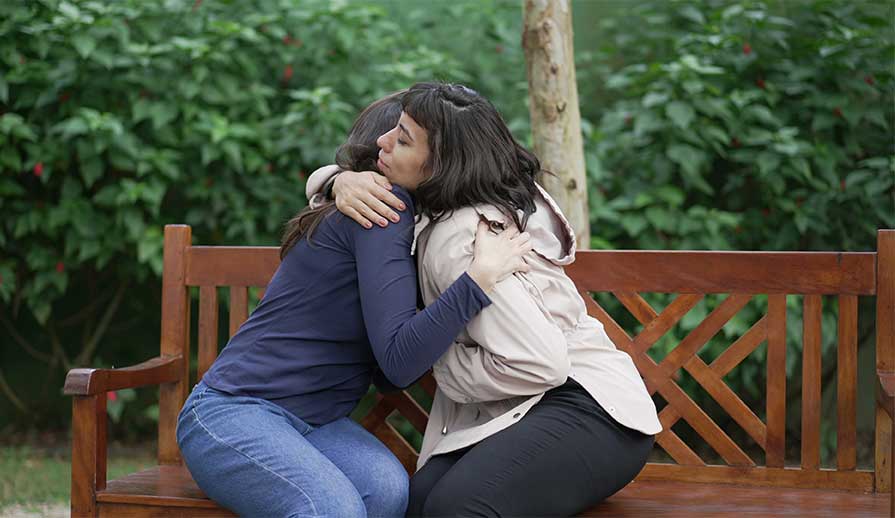How To Support A Friend In Addiction Recovery
For those of you with a friend who is struggling with a drug or alcohol addiction, there are numerous ways in which you can assist them on their road to recovery. You may recognize the warning signs of addiction and also take part in programs offered at the rehab center.

Addiction is defined as a chronic condition in which a person has the inability to stop participating in drug or alcohol use despite the negative consequences to their health and safety as well as the well-being of those around them.
There are numerous ways you can support a family member or friend who is struggling with drug or alcohol addiction.
If you have a friend who lives with addiction, you can help them during the recovery process. Showing support for their sobriety allows your friend to recognize that they have a strong support system.
Recognize The Warning Signs Of Addiction
While you may not be able to professionally diagnose a friend’s addiction, there are recognizable signs associated with drug use. Your friend may need to participate in an addiction treatment program.
There are several signs of addiction according to the National Institute on Drug Abuse (NIDA). These include the following:
- loss of interest in once-enjoyed activities
- sleeping difficulties
- mood swings
- poor performance at work or school
- poor hygiene
- self-isolation
- weight loss
By learning about the warning signs of addiction, you can better assist your friend as they begin their recovery journey.
Offer Your Support As They Recover
Once your friend is taking part in a drug or alcohol treatment program, consider participating in a program offered at the facility. Your friend may have a specific treatment plan which allows you to offer support by attending therapy sessions and support groups.
Several programs and treatment options are available for your friend such as Alcoholics Anonymous (AA) or Narcotics Anonymous (NA).
Speak With Your Friend About Their Addiction
According to the Substance Abuse and Mental Health Services Administration (SAMHSA), there are several ways to assist in approaching this difficult subject with your friend. For example, consider asking open-ended questions and show that you are listening.
Maintain Contact With Your Friend
You can help your friend in addiction recovery by maintaining contact with them. This can come in the form of phone calls, sending mail, or simply visiting your friend at rehab if possible.
When your friend enters rehab, they will need to provide the treatment facility with phone numbers of emergency contacts. Consider allowing your friend to use your phone number for assistance.
Set Boundaries With Your Friend
Although you can easily help your friend in addiction recovery in several ways, you must also take care of yourself and set firm boundaries with your friend. Once your friend has completed a treatment program, you should refrain from drinking alcohol in front of them.
If you live with your friend, consider providing a drug and alcohol free space. However, be sure to not allow your friend to become codependent. It is necessary for you to stand firm in your goal of assisting your friend with maintaining sobriety.
Know The Types Of Addiction Treatment
Your friend may receive a specific type of addiction treatment plan. Familiarize yourself with the various forms of addiction treatment offered so you can understand what works, or did work, for them.
Medical Detox
Medical detoxification is one of the first and foremost types of treatment that occurs during addiction recovery. Your friend may experience cravings for drugs during this time as well as withdrawal symptoms.
However, health professionals are there to help. Medical detox is a form of treatment which rids the body of unwanted and dangerous chemicals brought on by drug or alcohol abuse.
Inpatient Treatment
If your friend chooses inpatient treatment, they receive 24/7 access to support and the expertise of healthcare professionals. Inpatient facilities provide a structured and peaceful environment.
With residential treatment, your friend can participate in a wide range of treatment programs.
Medication-Assisted Treatment (MAT)
Medication-assisted treatment (MAT) can be helpful for those suffering from an opioid use disorder or an alcohol use disorder. This form of treatment is only available for those suffering from substance use disorder.
Dual Diagnosis Treatment
Dual diagnosis treatment may be necessary if your friend is suffering from co-occurring disorders such as a mental health disorder and a substance use disorder.
Aftercare Resources
Additionally, there are aftercare services that can be provided by the treatment center. This may include recovery options such as sober living homes, 12-step programs, and individual therapy.
Aftercare therapy can be a helpful way for you to participate in your friend’s goal of maintaining sobriety.
To find treatment or get professional help for yourself, a loved one, or a friend with alcohol or drug addiction, please contact us today.
- National Institute on Drug Abuse https://nida.nih.gov/nidamed-medical-health-professionals/treatment/addiction-treatment
- National Institute on Drug Abuse https://nida.nih.gov/research-topics/parents-educators/conversation-starters/what-are-signs-having-problem-drugs
- Substance Abuse and Mental Health Services Administration https://www.samhsa.gov/find-support/helping-someone/how-to-talk-to-someone-about-help
- Substance Abuse and Mental Health Services Administration https://www.samhsa.gov/families#:~:text=Starting%20the%20Conversation&text=If%20you%2C%20or%20a%20family,FindTreatment.gov%20to%20get%20help.

